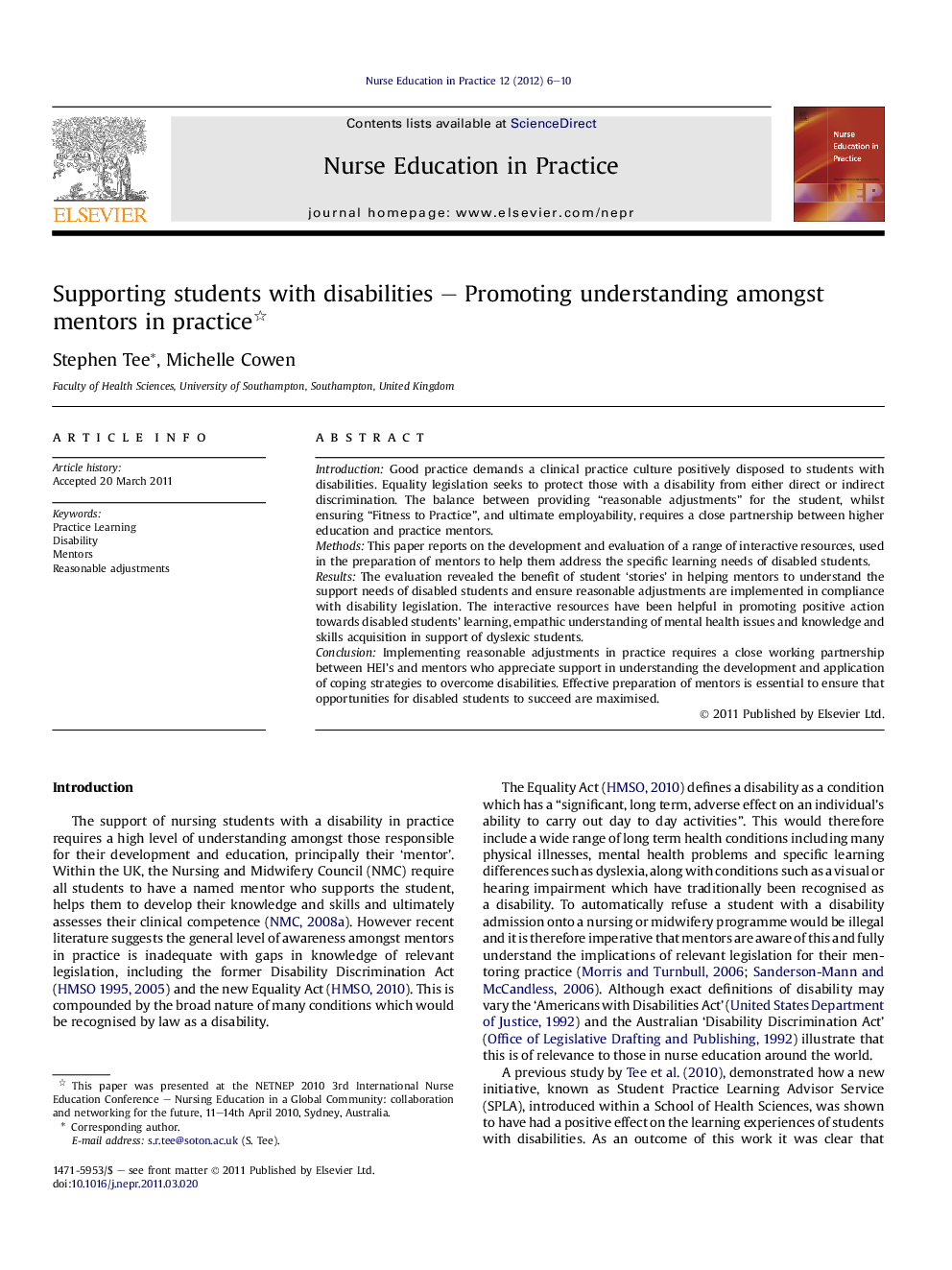| Article ID | Journal | Published Year | Pages | File Type |
|---|---|---|---|---|
| 366764 | Nurse Education in Practice | 2012 | 5 Pages |
IntroductionGood practice demands a clinical practice culture positively disposed to students with disabilities. Equality legislation seeks to protect those with a disability from either direct or indirect discrimination. The balance between providing “reasonable adjustments” for the student, whilst ensuring “Fitness to Practice”, and ultimate employability, requires a close partnership between higher education and practice mentors.MethodsThis paper reports on the development and evaluation of a range of interactive resources, used in the preparation of mentors to help them address the specific learning needs of disabled students.ResultsThe evaluation revealed the benefit of student ‘stories’ in helping mentors to understand the support needs of disabled students and ensure reasonable adjustments are implemented in compliance with disability legislation. The interactive resources have been helpful in promoting positive action towards disabled students’ learning, empathic understanding of mental health issues and knowledge and skills acquisition in support of dyslexic students.ConclusionImplementing reasonable adjustments in practice requires a close working partnership between HEI’s and mentors who appreciate support in understanding the development and application of coping strategies to overcome disabilities. Effective preparation of mentors is essential to ensure that opportunities for disabled students to succeed are maximised.
